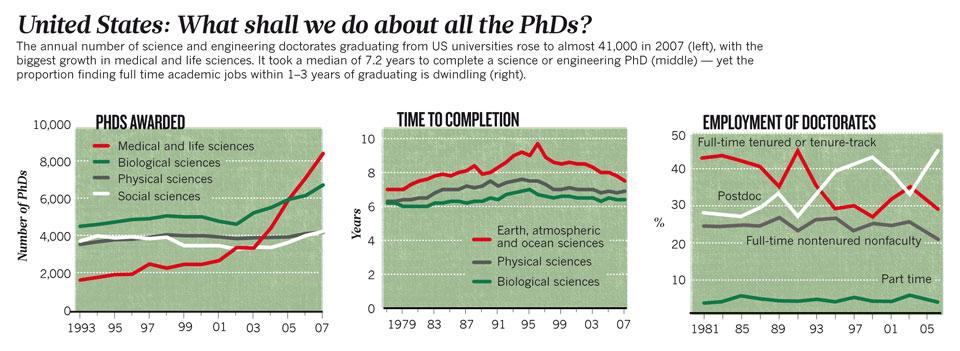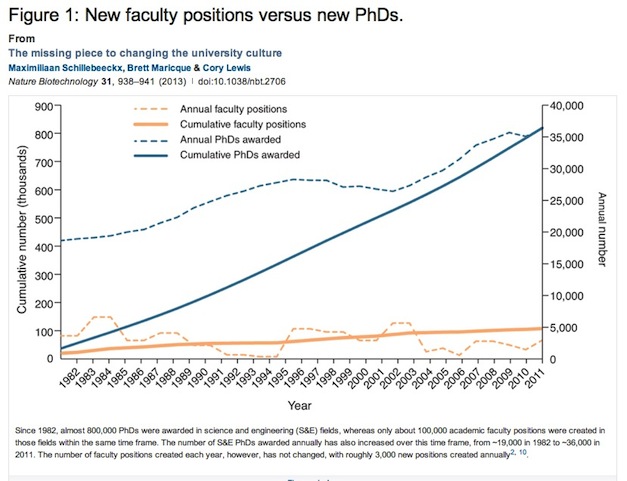The “postgraduate factory” produces highly-trained scientists of all sorts. In the process, education degrees are offered, such as Master in Science (M.Sc.), MBA, Professional Doctorate in Engineering (PDEng, popular in the Netherlands), Ph.D., postdoctoral training (informal), or habilitation (particularly in German, Austrian, and Swiss universities).
Not only the number of study programs is expanding (e.g., there are more than 900 M.Sc.-awarding programs in Greece) but the number of Ph.D. holders is globally expanding. A common misconception is that a Ph.D. is still useful only for academic career and especially for a tenured professorship position (i.e., for the “professoriate“). This is well-reflected in a highly-cited article of Nature magazine “The PhD Factory – The world is producing more PhDs than ever before. Is it time to stop?” back in 2011.

The statistics all over the world seem to converge to the same point: there are not enough tenured professorships for the PhDs awarded.

Many sources, albeit a bit outdated now, agree that the probability of landing into a tenure-track position is less than 25%. And the odds to secure a tenured professor position is around 10-15%. To put it simply … you study four years for your first degree, then two years for your master, and then 3-7 years (or even more …) to get your Ph.D., which is the entry point for the professoriate. Then you spent some 4-7 years of additional training (i.e., being a “postdoc“) to land to a tenure-track position and maybe get a tenure after seven more years. From Ph.D. to tenure, it can be anything between seven and 14 years of hard work. After the hard work of the Ph.D.
So, why do still people start to pursue a Ph.D. in first place? Are they aware of the odds and willing to play against them? What if it does not work out?
